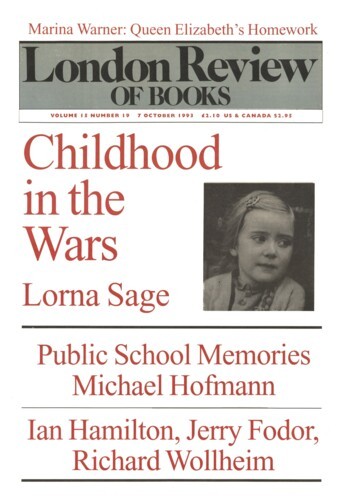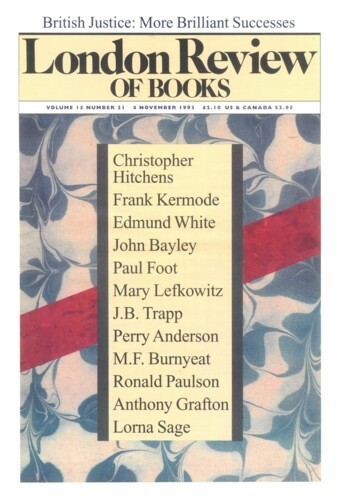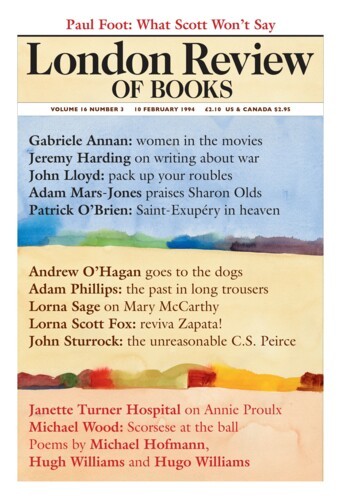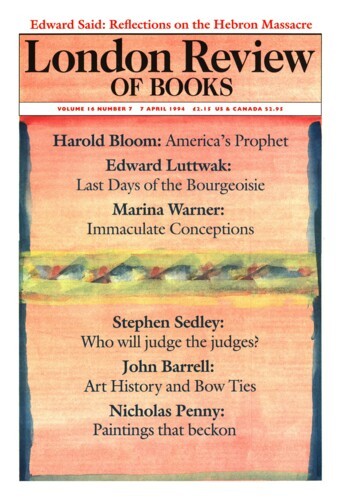The Old Devil and his wife
Lorna Sage, 7 October 1993
Grandfather’s skirts would flap in the wind along the churchyard path, and I would hang on. He often found things to do in the vestry, excuses for getting out of the vicarage (kicking the swollen door, cursing) and so long as he took me he couldn’t get up to much. I was a sort of hobble; he was my minder and I was his. He’d have liked to get further away, but petrol was rationed. The church was at least safe. My grandmother never went near it – except feet first in her coffin, but that was years later, when she was buried in the same grave with him. Rotting together for eternity, one flesh at the last after a lifetime’s mutual loathing. In life, though, she never invaded his patch; once inside the churchyard gate he was on his own ground, in his element. He was good at funerals, being gaunt and lined, marked with mortality. He had a scar down his hollow cheek too, which grandma had done with the carving knife one of the many times when he came home pissed and incapable.’





